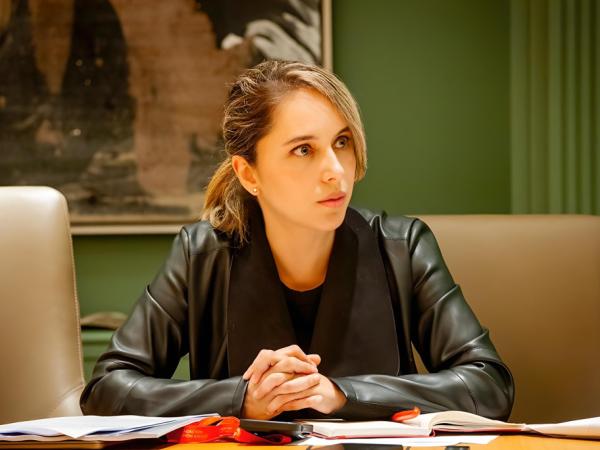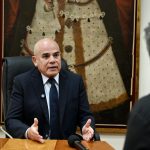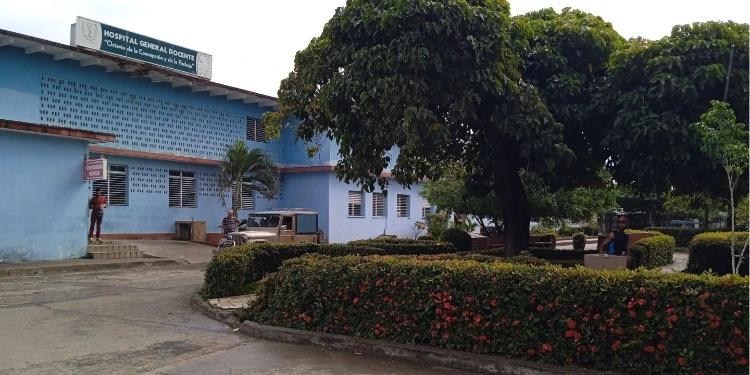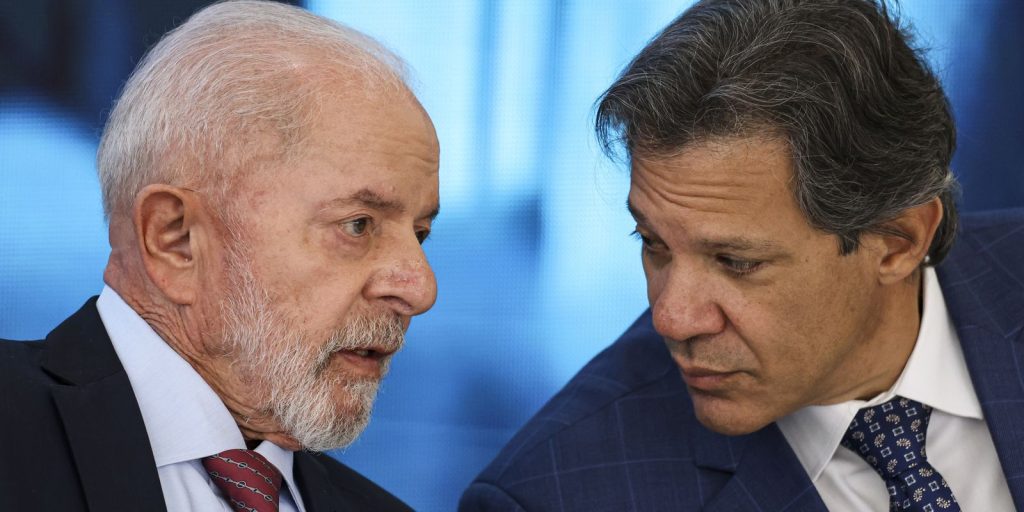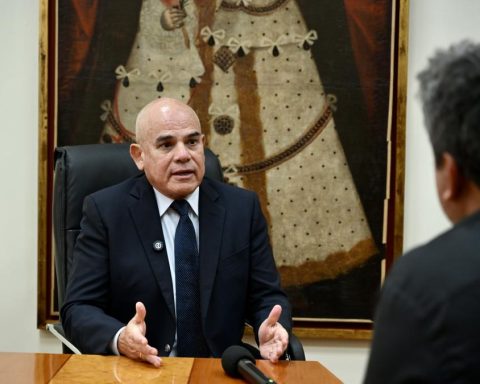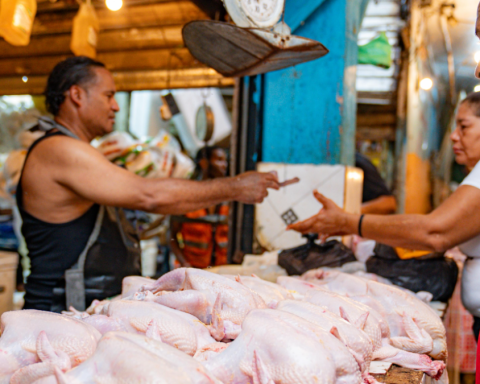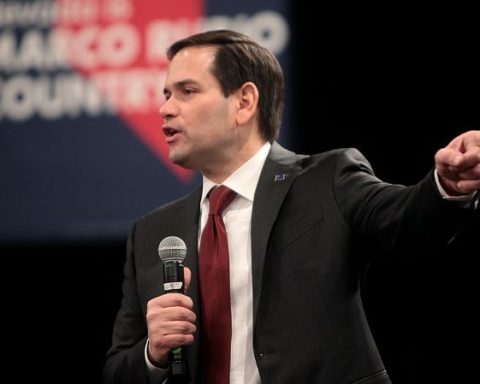20 years ago, Ana María Tribin won the award for best university student at the Portfolio Awards. His career during that time has been marked by reduce gender gaps and dignify the role of women within macroeconomic environments.
(Read: Two executives of Grupo Aval among the most innovative CEOs in Colombia)
Today, as a senior economist at the World Bank, he highlights that it is essential that The gender perspective becomes a determining factor in all fiscal and monetary policy decisions.
From the award until today, what has happened in your professional life?
20 years have passed and it has been a professional path full of learning and achievements. At that time, I had just finished my degree and joined the Bank of the Republic as an economist to work on macroeconomic models. Then I decided to do my PhD in Economics at Brown University, a wonderful time where I learned and met brilliant professors and colleagues, some of whom have won the Nobel Prize. During that time, I also got married and had my daughter Matilde, which made this time very special.
(Read: ‘Women have a lot to contribute and need support’)
After finishing my doctorate, I returned to Colombia, had my son Salvador and worked at the Banco de la República, where I consolidated research agendas on gender and migration. During my time in Colombia, I was a women’s equity advisor for the Government, and we managed to include the first gender chapter in the National Development Plan. I worked alongside women’s organizations on issues of economic empowerment and reducing gender violence, which was deeply moving and meaningful. I began to teach economics and gender at several universities, being one of the first to teach classes on this topic, seeking to inspire new generations.
I am co-founder of ‘Digna, Trabajo y Género’, a research and action project to promote gender equality in Colombia based on evidence. Then, I moved to New York to work at the UNDP, where among several of my roles I led the gender equity team for Latin America and the Caribbean. I currently work at the World Bank as a senior economist in the Women, Business and the Law project. We analyzed legislation in 190 countries to identify the barriers women face, and it has been gratifying to disseminate these findings across Asia, Latin America, Europe and the United States, working to eradicate these barriers and ensure equal rights for all.
(See: The challenges that women still face in closing gender gaps)
Colombian economy
iStock
How to transform the economy where the work of women is highlighted?
To transform the economy and highlight the role of women, it is essential that we understand the importance of aspirational models. We must open spaces so that women can occupy leadership roles and participate in high-level economic decision-making. We are in 2024 and, surprisingly, in our country we have never had a female Minister of Finance, despite wonderful initiatives such as that of the Bank of the Republic, which supports men and women to study doctorates in the best universities in the world.
It is not about a lack of candidates; the talent and preparation are there. The real challenge is to give visibility to these women and provide them with the opportunities they deserve to occupy these key positions. It’s time to break glass ceilings and allow educated women their rightful place in economic decision-making.
(See more: Nine out of 10 Colombians seek equity and freedom in their emotional relationships)
How do you see the gender economy?
When I started working on gender issues in Colombia from the Bank of the Republic. It was a very nascent topic. Many people asked me why I addressed gender issues from economics. It was interesting because it was a slow revolution: through pedagogy, evidence and strategic collaborations, we managed to show that gender equality is not only a question of justice, but also of economic efficiency; It is what we call “Smart Economics”.
In Colombia, women have, on average, more education than men, but in the labor market we continue to lag behind. Only half of women participate in the labor market, and we face one of the highest female unemployment rates in Latin America. I am proud to see that there is increasing awareness about the relevance of this issue, but there is still a long way to go. It is essential that the gender perspective becomes a determining factor in all fiscal and monetary policy decisions.
Our macroeconomic models, for example, must be gender sensitive. Otherwise, we are modeling an economy in which women virtually do not exist or where the barriers they face, such as caregiving burdens, are not recognized. To fully realize the potential of the female workforce, we need specific policies that address these realities and promote true economic inclusion.
(Read more: Lack of opportunities is leading women to become self-employed)

Gender gaps.
iStock
How has your career progressed?
My career has been a path of perseverance and conviction. Working on the economy from a feminist perspective has not been easy; Each achievement has involved fighting, opening doors, teaching and, above all, being constant. I would define my career as that of a woman who sets clear goals and works with great determination, regardless of whether sometimes that means going against the grain. I work with passion and a sense of purpose, convinced that my contribution has value that can generate change.
(See more: Insurance sector contributes to the reduction of the employment gap between men and women)
What projects do you plan to focus on?
My goal is to continue combining research and public policy on equality issues, seeking to make visible the barriers faced by women and vulnerable populations, such as migrants. I am very happy to work on the ‘Women, Business and Law’ project at the World Bank, as it allows for that combination of generating data and promoting changes that improve the lives of women around the world. Additionally, I want to continue strengthening the Digna project at the Universidad de los Andes, which seeks, through evidence, to close gender gaps and have a real impact on our Colombian society.
(Read also: France pointed out link between climate change and a discriminatory development model)

World Bank Group
iStock
What message do you have for young people who are educating themselves in economic areas?
“The sky is the limit.” Choose jobs that you are passionate about, in which you feel that you are making a true contribution to society. Be persistent, because you will be aspirational models for the next generations. Also, remember that sorority is key No one advances alone, we advance together.
(See: Financing, another path to equity)
What motivates you to be the best?
My family, my children, my husband, my friends, my co-authors, my work, and a deep intolerance towards injustice. Also leave a positive legacy for future generations.
What skills should students have to respond to what the world demands?
Perseverance, passion, empathy and solidarity.
(Read more: The Best Places to Work in Colombia for Women – 2024)
